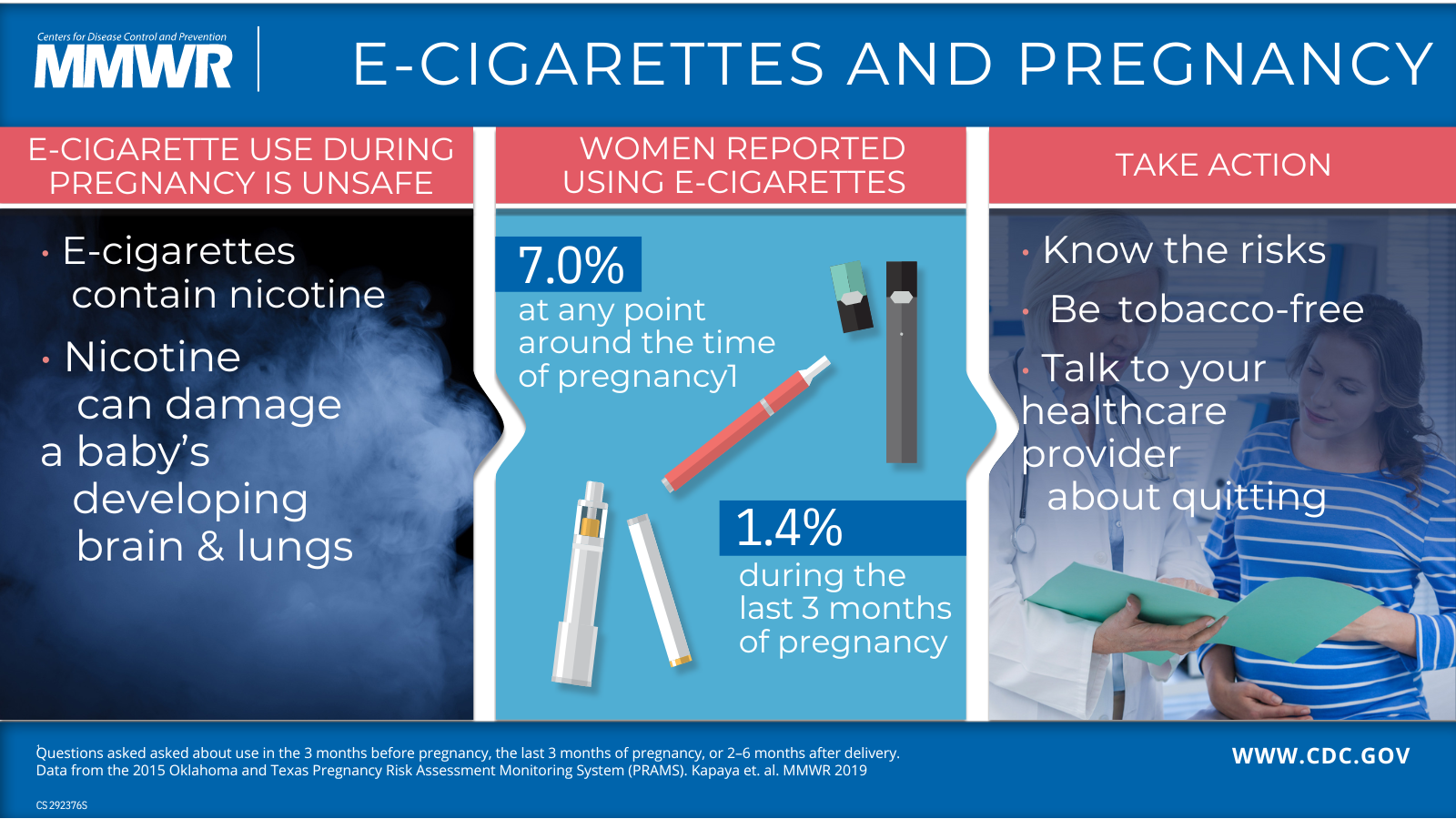Scientific evidence confirms that electronic cigarettes (e-cigarettes) are harmful during pregnancy. Contrary to misconceptions about their safety, vaping poses significant risks to both maternal and fetal health.
Nicotine: The Core Danger
E-cigarettes nearly always contain nicotine, a highly addictive substance proven detrimental to fetal development.

- Brain & Lung Development: Nicotine disrupts critical processes, leading to potential deficits in learning, attention, and respiratory function.
- Placental Function: Nicotine constricts blood vessels, reducing blood flow and oxygen/nutrient supply to the developing fetus.
- Preterm Birth & Low Birth Weight: Strong associations exist between nicotine exposure and these serious adverse birth outcomes.
- Sudden Infant Death Syndrome (SIDS): Prenatal nicotine exposure is a known risk factor.
Beyond Nicotine: Chemical Concerns
E-cigarette aerosol is not harmless “water vapor.” It contains numerous potentially toxic substances:
- Ultrafine Particles: Inhaled deeply into the lungs, carrying other chemicals into the bloodstream.
- Flavoring Chemicals (e.g., Diacetyl): Linked to serious lung damage; unknown effects on fetal development.
- Volatile Organic Compounds (VOCs) & Heavy Metals: Released from heating elements and liquids (e.g., formaldehyde, lead), posing toxic risks.
Why Cessation is Crucial
Pregnant individuals using either traditional cigarettes or e-cigarettes should quit completely.
- No Safe Level: There is no established safe threshold for nicotine exposure in pregnancy.
- Not a Safe Alternative: E-cigarettes are NOT a recommended cessation tool during pregnancy due to the risks outlined.
- Dual Use Hazard: Using both e-cigarettes and traditional cigarettes, common among pregnant individuals seeking to cut down, does not eliminate risks and may be particularly harmful.
Seeking Safer Support
If pregnant and using tobacco or nicotine products, including e-cigarettes:
- Consult Healthcare Providers Immediately: Discuss safe, evidence-based cessation strategies approved for pregnancy.
- Behavioral Support: Counseling and support programs significantly increase successful quit rates.
- Avoid Unapproved Methods: Do not switch to e-cigarettes or continue their use. Focus on complete cessation under medical guidance.
Scientific consensus is clear: electronic cigarettes pose a significant danger during pregnancy due to nicotine toxicity and harmful chemical exposure. The safest approach is complete abstinence from all nicotine and tobacco products before and during pregnancy.








